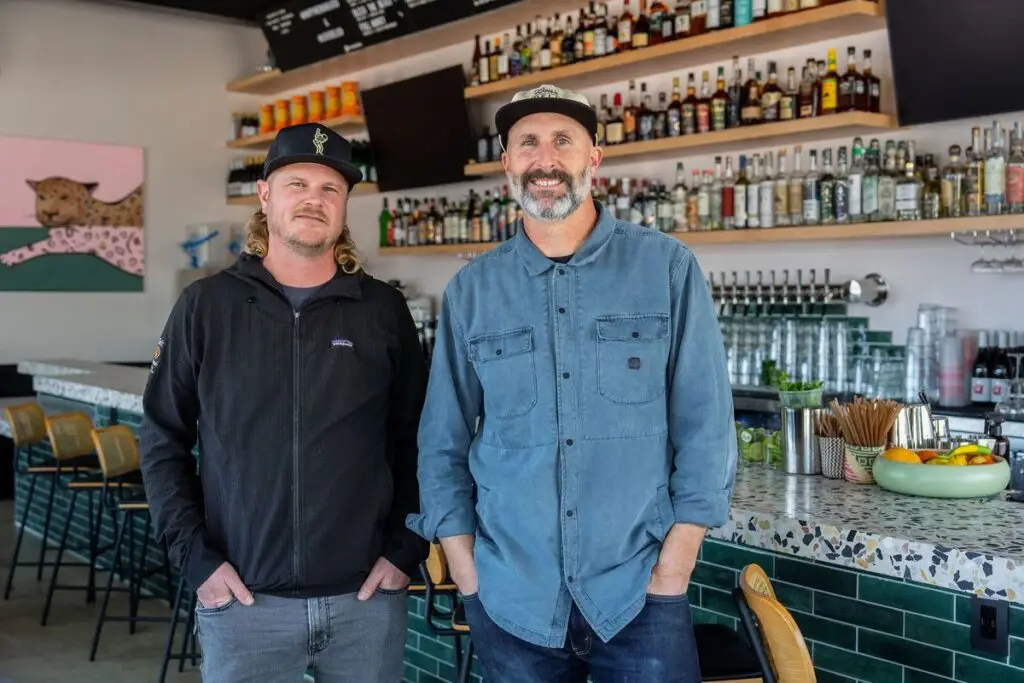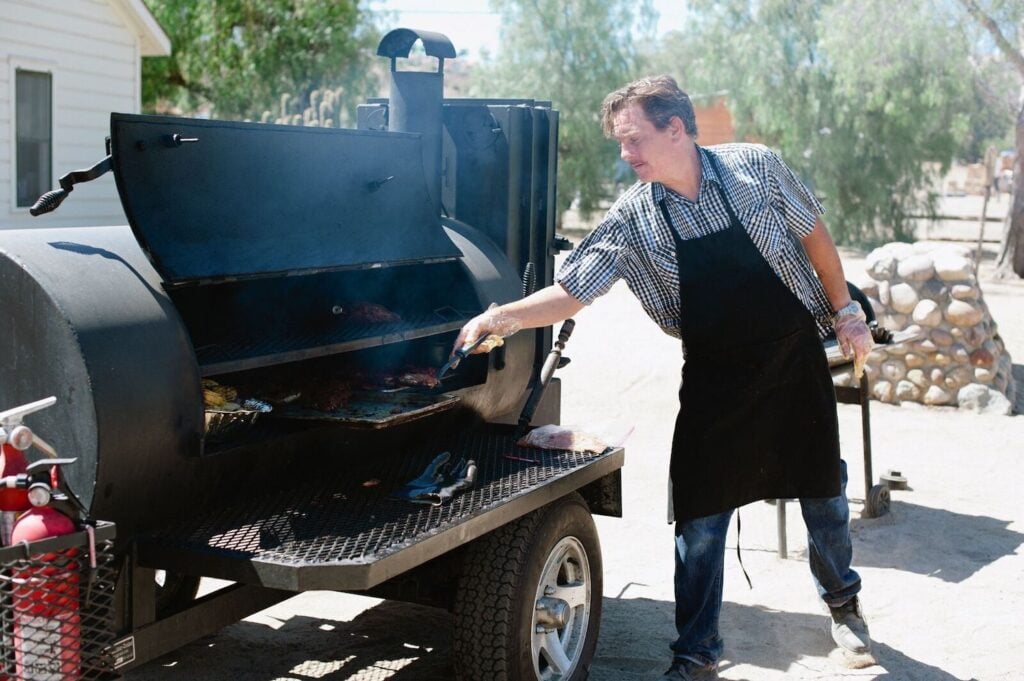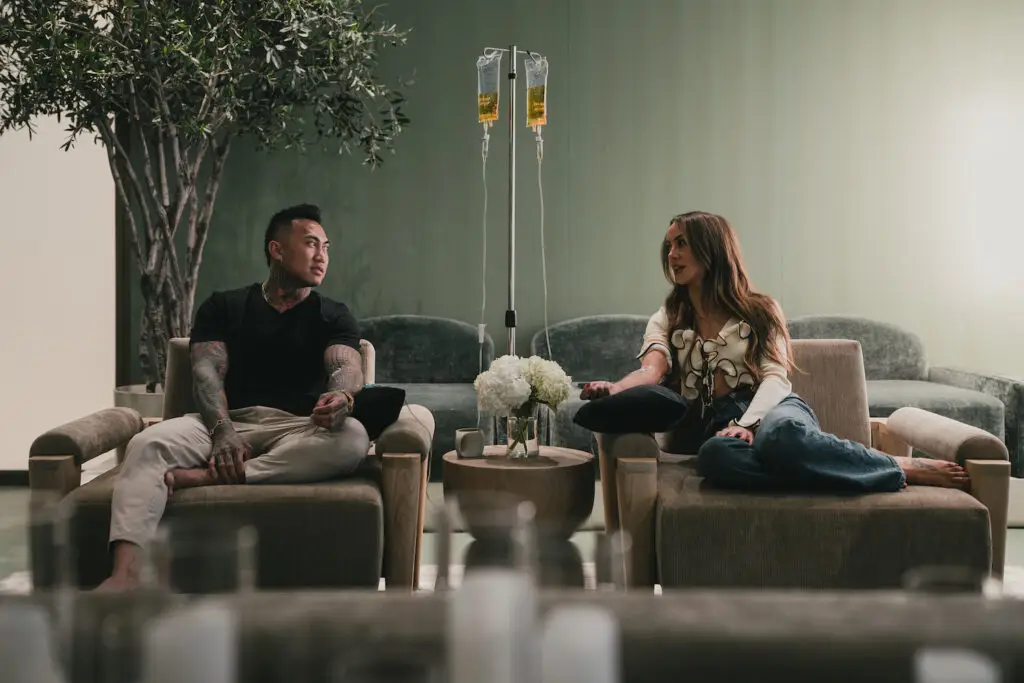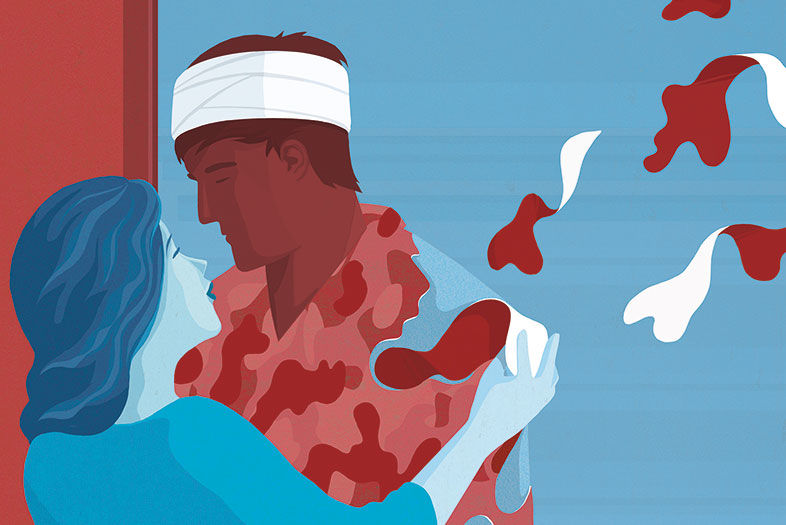Three years ago, while driving across the Coronado Bridge, Barbara McNally saw a man stop his car, walk to the bridge’s railing, and jump to his death. McNally, who later learned that the man was a military veteran, says that what she witnessed that day changed her life.
“I put everything on hold,” she says. “I evolved at that point from physical therapist to author and advocate for veterans and their significant others.”
McNally began reaching out to families coping with the aftermath of deployments in Afghanistan, Iraq, and other combat zones. During those meetings, she was especially moved by military spouses and their determination to save their strained relationships with their husbands.
The result of those conversations is her poignant new book, Wounded Warrior, Wounded Wife, a combination of investigative journalism and self-help that takes an unflinching look at the personal stories of military couples making the hard adjustment to life after active duty.
Using only the first names of the veterans and their wives to protect their privacy, McNally focused on the caregivers who inherit the gargantuan task of trying to escort loved ones back into the world.
“So many people who go off to war come home very different people, both physically and emotionally,” McNally says.
More than a third of the 17 million military caregivers in the United States are caring for a veteran who is physically and/or psychologically wounded. Most of these caregivers are women.
“So many people who go off to war come home very different people, both physically and emotionally.”
As many as one-third of the men and women who’ve deployed since 9/11 suffer from post-traumatic stress, which manifests in various ways, from anger, anxiety, and depression to suicidal thoughts. Plus, many veterans deal with traumatic brain injury, amputated limbs, and more.
One of the most compelling aspects of the book is its guidance for military couples on reconnecting and resuming a healthy sex life.
“No one else has really written about sexuality and intimacy after injuries from war, from amputations to castrations,” McNally says. “You can still have great intimacy.”
Jason, a combat veteran profiled in the book, was a kind, happy person when he enlisted. But when he returned from his Afghanistan deployment, where he saw two friends killed in an attack, he was angry, withdrawn, and suffered from combat guilt.
But his wife, Julie, refused to give up on him. She got him into a program called Project Healing Waters, which helps to physically and emotionally rehabilitate disabled veterans through fly fishing.
“For the spouses, a huge part of getting through this is simply knowing what to say to veterans and what not to,” McNally says. “If you get mad because your husband doesn’t want to go to Disneyland, for example, you should maybe reconsider how you describe that frustration to him. Maybe he would just rather take a walk with you on the beach.”
McNally has found other ways to help warriors’ wives, too. She recently founded the Barbara McNally Foundation, which offers workshops, seminars, and scholarships for wounded warrior spouses; its signature event is SPA (Support, Purpose, and Appreciation) Day.
Twice a year, The Spa at Hotel del Coronado partners with the foundation to provide Champagne, lunch, and a relaxing day of treatments in the hot tub, steam room, and private pool. Spa director Holly Edgin plans to continue The Del’s support for as long as it’s needed.
McNally says one of the main messages of her book is that couples can actually become even closer and more intimate after veterans return from war.
“When these veterans come home, they are dealing with so many issues, and yet they still survive and thrive,” she explains. “That makes their spouse love and respect them even more.”
Update: Vietnam War Veteran Receives VA Disability Benefits
After a two-year tug-of-war with the San Diego Department of Veterans Affairs over his disability claim, Victor Ramos, a Vietnam War veteran who was
profiled in this column in September
, was awarded his disability benefits for service-connected Parkinson’s disease due to his exposure to Agent Orange in 1971.

The Challenges of Living with a Wounded Warrior
Illustration by Stephan Schmitz


















